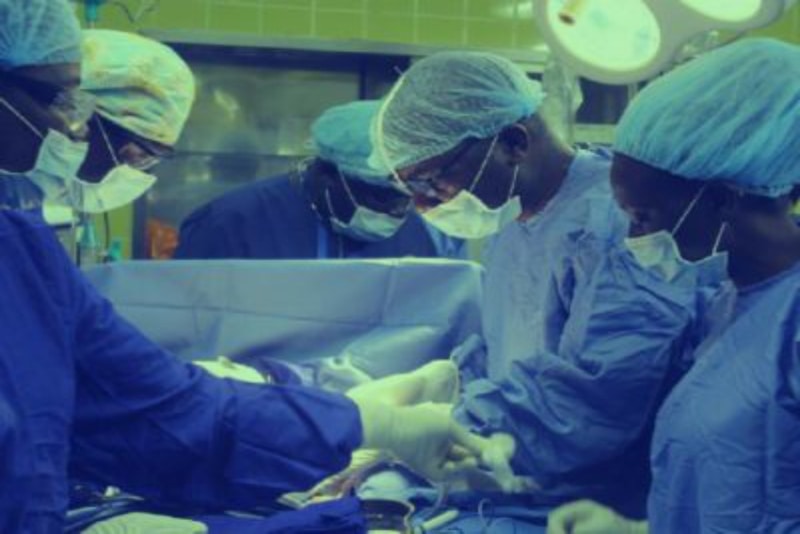AN ESTIMATED 120 doctors resigned from Zambia’s state health sector last year, owing to poor conditions of service and government’s failure to pay arrears from as far back as 2010.
A well-placed government source said doctors are owed settling allowances, gratuities and outstanding payments for ministry of health human capital development in specialised medicines abroad.
The source said had the 28 June to 3 May standoff between doctors and government not been called off, the health sector would have been paralysed.
?
“Technically, a lot of doctors in my shoes, despite being senior in the profession are still holding junior positions,” he said. “So, any full-blown strike would have left very few doctors working because most of us would have downed tools,” he said.
Makanday has learned that many doctors are just seniors on paper because they are still being paid the same salaries as juniors.
Dr Brian Sampa, leader of the resident doctors association, who was recently fired for leading a protest for better conditions of service told MakanDay that staff shortages are mostly felt in rural Zambia, where people often travel hundreds of kilometres for a rushed consultation.
“Mpika (district) is very big, we have Michael Chilufya Sata General Hospital, the entire hospital only has one doctor working in the theatre, attending to emergences and do(ing) ward rounds…, it is difficult for doctors to give quality care to patients,” he said.
He said his association was advocating for more doctors to be employed, especially now when the country is dealing with the third wave of Covid-19 which is claiming many lives.
Dr Sampa said of the 5,000 doctors working in both private and public hospitals in Zambia, 3,500 are resident doctors and only 700 are specialists working in government.
The health ministry acknowledges the staff shortages in the 2017 – 2021 national health strategic plan, which states that as of December 2016, “the ministry had an approved establishment of 63,057 positions, but only 42,515 were filled, representing 67% of the approved establishment”. The average patient-to-doctor ratio is about 12,000:1, more than double the World health Organisation recommended ratio of 5,000:1 doctor.
Health Permanent Secretary, Dr Kennedy Malama said government, with help from the World Bank and the World Health Organisation (WHO) has employed about 766 health workers to caution staff shortages during Covid-19.
Dr Sampa said the ratio can only be reduced if government employed more doctors, and that currently there are more than 500 unemployed roaming the streets.
A well-placed government source said the conundrum facing unemployed doctors is the law which has been made in such a way that only government can employ fresh graduates.
MakanDay carried out a survey in some public hospitals to establish how health workers are coping with overwhelming cases of COVID-19.
Some patients at Matero Level One Hospital in Lusaka told Makanday that due to lack of manpower, doctors are conducting rushed consultations because of overwhelming cases of COVID-19.
A nurse at Levy Mwanawasa Hospital, which also doubles as a Covid-19 isolation centre, spoke anonymously to Makanday for fear of reprisals. She confirmed that the hospital faces erratic supplies of essential medicines and medical accessories such as gloves and protective wear. She said the hospital faces other challenges such as lack of cleaning materials for the wards.
She further revealed health workers who are contracting the virus on duty are not receiving adequate support from government apart from being asked to self-isolate.
“We have seen other (health) institutions giving their staff some days to rest at home so that they are not over exposed to the virus, but it is not so with healthcare workers. They remain over exposed and no one seems to care,” she said.
The Zambia Medical Association has called for a comprehensive healthcare cover for all health workers. Association secretary general, Dr Masiku Phiri said in a statement that health workers have fewer options when they fall ill during the Covid-19 fight.
He said all public health workers have only two options. The first is to receive healthcare through a scheme based system at their station of employment and the second is through the National Health Insurance Management Authority (NHIMA) coverage, which is out-patient heavy and does not cover a host of in-patient services required during hospitalisation and acute illness.
He said the third option is to pay out-of-pocket, which is very challenging in prevailing economic times.
At the time of writing, there were an estimated 2,700 Covid-19 deaths and well over 170,450 cases since the first case in March last year.
The Covid-19 outlook further shows that the rate of infection and deaths from the third wave are significantly higher than those experienced in the first two waves despite the government rolling out the vaccine programme in May this year.
But Dr Malama said government priority was to ensure that the health workers are well protected, and not overworked by ensuring that the nurse and doctor patient ratio is reduced.
“Instead of one nurse looking after 40 patients which is not good at the moment, we are re-collapsing that by employing more health workers I can assure you,” he said in a statement.
Dr Malama further said during this pandemic, government has learned the need to invest in health security to ensure systems are resilient both in the health sector and outside.
“We need to think of how we can prepare adequately in case we are hit by future pandemics and invest in research support in local production of PPEs, including vaccines,” he said.
New state hospitals have sprung up, including Kalindawalo General Hospital in Petauke, but they lack vital equipment and staff and have no drugs to dispense to patients. In many cases over-the-counter painkillers are dispensed, even for serious conditions.
Discover more from MAKANDAY
Subscribe to get the latest posts sent to your email.
